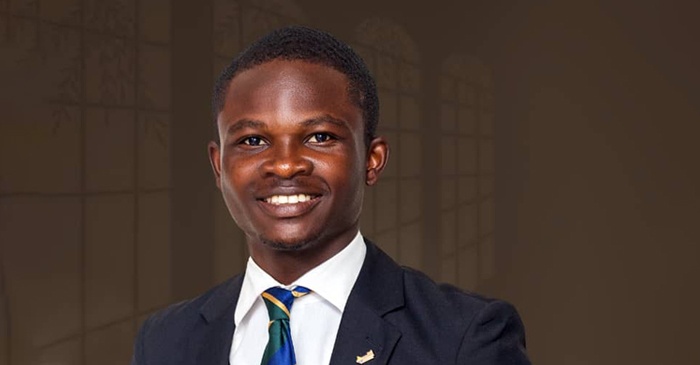Scripture References: Ezekiel 48:11 – 18, 2 Timothy 2:19 – 22, Ecclesiastes 8:11
Eli was the high priest and had forgotten what it was to be in the priesthood and what the priesthood is all about. The Bible says that he had been in ministry so long that he was lazy, undisciplined, blind, had lost his vision, and would not discipline his sons who were totally immoral and would not straighten up. Eli was a mess spiritually, and his family was a mess too; he was doing church stuff while all kinds of immorality were going on (1 Samuel 1:1-15).
Personal sin does not stop ministry. The gifts and callings of God are without repentance. When God gives a gift, He does not take it back. Bad things can happen, and for a season, God will allow that person to continue to function as normal.
When your attitude as a believer becomes easier to get forgiveness than permission, you are in trouble.
In this text, God was saying, “I see that there are two priesthoods that are in the house (the temple).”
- THE PRIESTHOOD OF ELI:
They are those who are wrong and not delivering right, yet they are ministering. God still said He’s going to use them. He’ll let them have ministry in His house. They’ll minister to people but will not come near to me (God). The fact that He has given you that gift, He’ll let you minister to His people—the word, ministration, singing, healing, prophetic, etc. Because His word does not return void, it has to make an impact. God loves His people so much that He will use anything, even a donkey, to speak to them.
1.1 CHARACTERISTICS OF THE PRIESTHOOD OF ELI:
- It is impure.
- It compromises.
- It says, “I can live like I want to live, and my gifts will still work.”
Judgment does not immediately come, but listen, God can be blessing you. Businessperson, your gifts may be making money, and God can be blessing you; He doesn’t inspire personal sin. He is gracious, kind, long-suffering, and patient with us.
In Ezekiel 44:11, they will do all these things, but God said:
“They shall be ministers in my sanctuary, having oversight at the gates of the temple and ministering in the temple. They shall slaughter the burnt offering and the sacrifice for the people, and they shall stand before the people to minister to them.”
- They will not have intimacy with me
- They will not come into my holy place, and
- They will not come near me.
This is one of the scariest scriptures ever heard. Imagine that all you’ve been this far is all about outward performance, and you’re ministering to them through the gifts. You can preach if you got drunk last night, and your gifts will still work. You can minister to people and not touch God; you don’t come near Him. What kind of priesthood do you want to be? Do you want a wall that looks religious outwardly, and everybody thinks one thing, but personally, you’re unclean? The gifts will work for a season no matter what you’re doing, but you’ll never get near God.
I want to be that person who has fun, lives life, enjoys life, and has success, but I want to be pure, I want to be clean, I want to be holy like Jesus, I want to be sanctified by Jesus and set apart.
I can tell by how much you sing, how successful you are, how religious you look outside here; the issue is, in God’s eyes, when He looks beyond the surface, does He see the LINEN UNDERWEAR? This means personal holiness in areas of your life that people cannot see. That’s the issue.
On the other hand, the priesthood of Eli is those that are corrupt and unclean, but there is another priesthood in verse 15.
- THE PRIESTHOOD OF THE LEVITES
Zadok comes from a Hebrew word, TSODEK, meaning ‘to be right,’’ to be correct,’’ and ‘to be righteous’’ (Ezekiel 44:15-18).
2.1 CHARACTERISTICS OF THE ZADOKS (ZADOKITES):
- They shall come near me.
- They shall minister unto me.
- They shall stand before me to offer sacrifices.
- They shall keep His charge and approach His table to minister to Him.
“I don’t want them to sweat; the curse of men was the sweat of the brow when Adam fell into sin. But God is saying to the Levites here: I don’t want you to sweat; I want you to come into My presence. It’s not your ability and talent; it’s your relationship with me that’s more important. You’ll minister to them more effectively because you’ll minister to me first with a life that you live—a personal holiness.”
Nobody knows what you have hidden under that priestly garment. Nobody knows what colour your underwear is; we’re not going to check. Nobody knows if you have your own underwear; only God and you know, and that is what exactly He was saying in the text. Only God and you know personally if you’re living a life of purity and holiness. Underwear doesn’t show externally on you, and God knows for sure if it’s on or not. In this text, God was talking about our PERSONAL HOLINESS; it’s private, it’s personal, and it’s internal.
Everywhere good results are happening doesn’t mean it’s clean, it’s pure, and it’s acceptable to God. I choose a ministry that ministers to God. It’s not what’s going on in a person’s public life but what’s going on in their private life that really matters. God is getting ready to change the priesthood in some people if they don’t get it right.
- Brother Saul had no idea; his replacement David was growing up in his house. And when he was playing the harp, he had no idea he was his replacement because God was long-suffering.
- Pharaoh had no idea when Moses was little and sitting on his table eating cornflakes, T.Z., and fufu. He had no idea he was so powerful; everything outwardly looked like he’s wonderful in Egypt. He didn’t know Moses was raised up to replace him.
- Eli’s ministry—in this ministry, God is not in a hurry. Eli is just ministering corrupt, immoral, and dishonest; his boys sleep with women in the church, do drugs get high, and smoke cigarettes. To be used by God is a precious thing; treasure it, guide it. Don’t play with God’s anointing, talents, and favour because you can lose it. There’s a difference between an ELI’s priesthood and ZADOK; those who have been with me.
There are two priesthoods; there are singers who minister to people, but God said they won’t minister to me. Their music won’t minister to me, their preaching won’t minister to me, their business won’t minister to me. It will only minister to people. There are two kinds of musicians: the music that ministers to people and that which ministers to God (2 Timothy 2:20-22).
20 Now, in a great house, there are not only vessels of gold and silver but also of wood and clay, some for honourable use, some for dishonourable. 21 Therefore, if anyone cleanses himself from what is dishonourable, he will be a vessel for honourable use, set apart as holy, useful to the master of the house, ready for every good work. 22 So flee youthful passions and pursue righteousness, faith, love, and peace, along with those who call on the Lord from a pure heart.
When you understand that there are vessels of honour and dishonour, He’s promoting, and He’s demoting some. We’re in an hour of transition (2 Timothy 2:19). That’s personal holiness.”
In verse 21, if you judge yourself, I won’t judge you—sit yourself down and stop that which entangles you. Get on your knees and repent, and God says, I will keep blessing you; I will keep promoting you. But if you ever get the chance to play the game with Christians, then you’ve got a season to make a change. Anyone who wants to do right, God will help you. ZADOK or ELI is a vessel of honour or a vessel of dishonour. Lord, purge me, cleanse me, and use me—this is after you’ve realized your faults. This is a kind of message that would get you to heaven; it will make you do an inspection of your soul. This is a kind of warning from the Lord in the gentleness of love. I believe the Lord wants you to know the difference in His grace and mercy.
Grace is God giving you what you don’t deserve. Mercy is God holding back what you deserve. Now, I want to see some people doing a God check, saying am I going to heaven? Am I a vessel of honour or dishonour? Am I really drawing near to God? Do I ever get in His presence, or is it just outward religion on Sunday as ELI or as ZADOK? Draw near to me.
Written by Elder Wayo Felix (Abesim District – English Assembly)


















